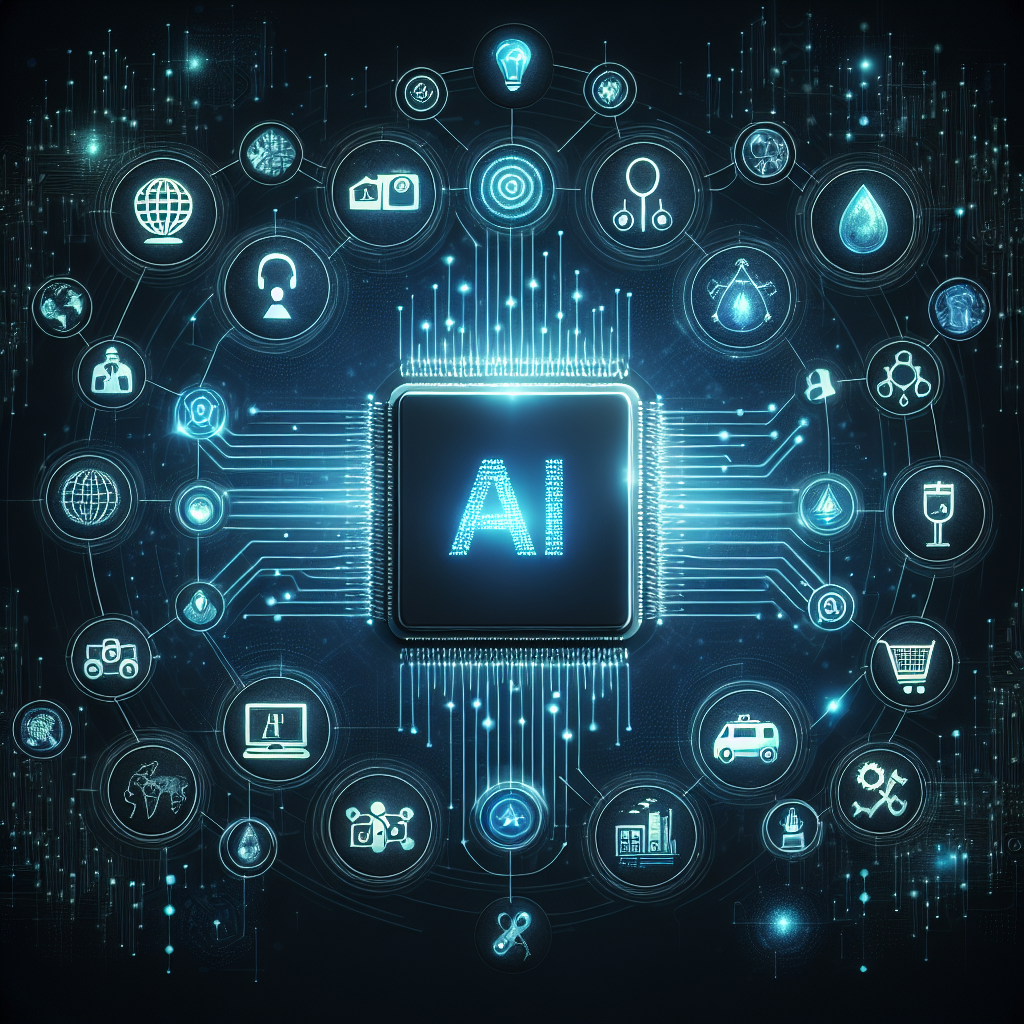The Role of AGI in Revolutionizing Industries: How Will AI Shape the Future?
Artificial General Intelligence (AGI) is a term used to describe a type of artificial intelligence that possesses the ability to understand, learn, and apply knowledge across a wide range of tasks. Unlike narrow AI systems, which are designed to perform specific tasks or functions, AGI has the potential to think and reason like a human, making it a powerful tool for revolutionizing industries across the globe.
In recent years, advancements in AI technology have made significant strides towards achieving AGI capabilities. As a result, many experts believe that AGI will play a crucial role in shaping the future of various industries, from healthcare and finance to transportation and manufacturing. In this article, we will explore the potential impact of AGI on different sectors and discuss how AI will revolutionize the way we work and live.
Healthcare Industry
One of the most promising applications of AGI is in the healthcare industry. With the ability to analyze vast amounts of medical data and make accurate diagnoses, AGI has the potential to revolutionize patient care and treatment. By leveraging AI-powered tools, healthcare providers can improve the accuracy of diagnoses, personalize treatment plans, and predict potential health issues before they arise.
For example, AGI-powered systems can analyze medical images, such as X-rays and MRIs, to detect early signs of diseases like cancer. By identifying these issues at an early stage, doctors can provide timely interventions and improve patient outcomes. Additionally, AGI can help streamline administrative tasks, such as scheduling appointments and managing patient records, freeing up healthcare professionals to focus on delivering quality care.
Finance Industry
The finance industry is another sector that stands to benefit from the adoption of AGI technology. With the ability to analyze complex financial data and identify patterns, AGI-driven systems can help financial institutions make more informed decisions and reduce risks. By leveraging AI algorithms, banks and investment firms can improve fraud detection, automate trading processes, and enhance customer service.
For example, AGI-powered systems can analyze market trends and predict future fluctuations, enabling investors to make smarter investment decisions. Additionally, AI can help detect suspicious activities, such as fraudulent transactions or money laundering, and alert financial institutions in real-time. By leveraging AGI technology, the finance industry can improve efficiency, reduce costs, and enhance overall performance.
Transportation Industry
The transportation industry is undergoing a significant transformation, thanks to advancements in AI technology. With the development of autonomous vehicles and smart transportation systems, AGI is revolutionizing the way people and goods are moved from one place to another. By leveraging AI-powered algorithms, transportation companies can improve safety, reduce congestion, and enhance the overall travel experience.
For example, autonomous vehicles equipped with AGI capabilities can navigate traffic, avoid collisions, and provide a seamless transportation experience for passengers. Additionally, smart transportation systems can optimize traffic flow, reduce emissions, and improve fuel efficiency. By incorporating AGI technology into transportation systems, cities can create more sustainable and efficient mobility solutions for their residents.
Manufacturing Industry
The manufacturing industry is also experiencing a significant shift towards automation and AI-driven processes. With the adoption of AGI technology, manufacturers can improve production efficiency, reduce costs, and enhance product quality. By leveraging AI-powered robots and machines, companies can streamline manufacturing processes, optimize supply chain management, and increase overall productivity.
For example, AGI-powered robots can perform complex tasks, such as assembly and quality control, with a high level of precision and accuracy. Additionally, AI algorithms can analyze production data in real-time to identify inefficiencies and optimize workflows. By harnessing the power of AGI, manufacturers can create smarter, more agile production systems that can adapt to changing market demands and customer preferences.
Overall, the role of AGI in revolutionizing industries is undeniable. As AI technology continues to evolve and become more sophisticated, the potential applications of AGI in various sectors are limitless. From healthcare and finance to transportation and manufacturing, AGI has the power to transform the way we work, live, and interact with the world around us.
FAQs:
Q: What is the difference between AGI and narrow AI?
A: AGI refers to artificial intelligence that possesses the ability to understand, learn, and apply knowledge across a wide range of tasks, similar to human intelligence. In contrast, narrow AI systems are designed to perform specific tasks or functions, such as image recognition or natural language processing.
Q: How will AGI impact job roles in different industries?
A: While AGI has the potential to automate certain tasks and processes, it is also expected to create new job roles that require human oversight and collaboration with AI systems. Industries will need to adapt to the changing landscape by upskilling their workforce and embracing AI technology as a tool for innovation and growth.
Q: What are the ethical implications of AGI in industries?
A: As AGI becomes more prevalent in industries, there are concerns about data privacy, security, and bias in AI algorithms. It is essential for companies to prioritize ethical considerations when deploying AGI technology and ensure transparency, fairness, and accountability in their AI systems.
Q: How can industries prepare for the adoption of AGI technology?
A: To leverage the full potential of AGI in revolutionizing industries, companies should invest in AI research and development, collaborate with AI experts and researchers, and create a culture of innovation and experimentation. By embracing AGI technology, industries can stay ahead of the curve and drive growth and transformation in their respective sectors.
In conclusion, the role of AGI in revolutionizing industries is set to reshape the future of work and innovation. By harnessing the power of AI technology, industries can unlock new opportunities, drive efficiency, and create a more sustainable and connected world. As we continue to witness the evolution of AGI, it is essential for companies to embrace AI technology as a tool for transformation and growth. With the right strategies and mindset, industries can thrive in the age of AI and shape a future that is intelligent, innovative, and inclusive.

